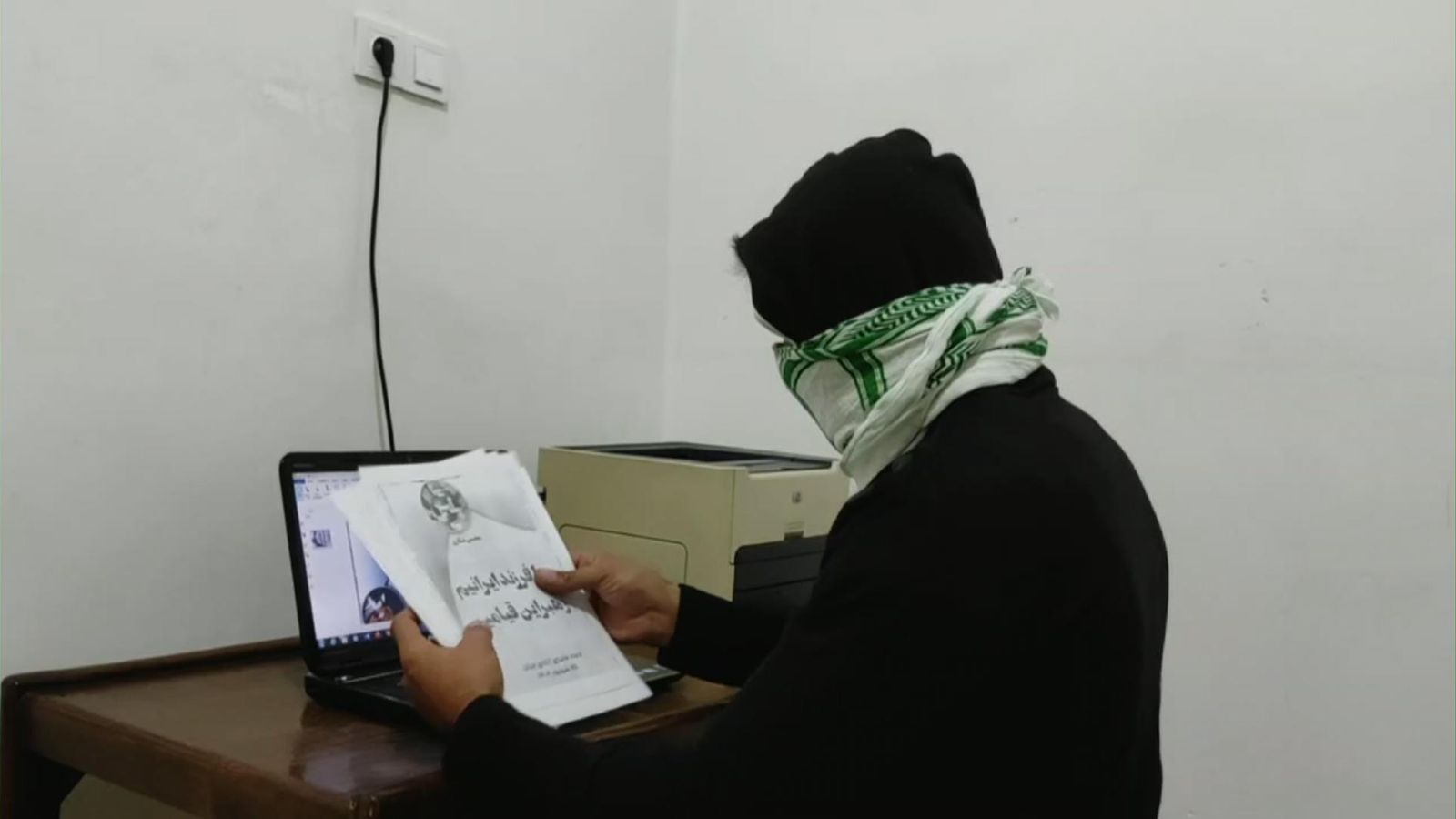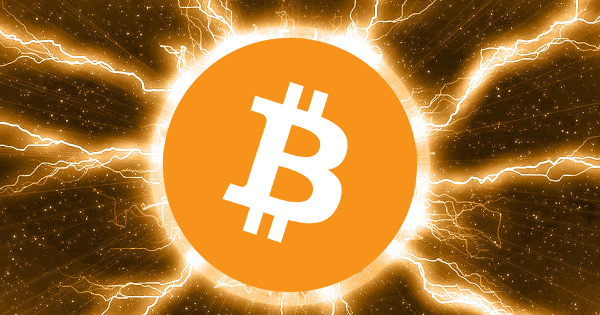A year on from the death of Mahsa Amini, members of an underground network of protesters belonging to a grassroots revolutionary group called “United youth of Iran’s neighbourhood” have told Sky News how they are waging a war against the Iranian regime.
“I’m fed up with the oppression of a government that beats us, kills us, kills children,” says one young female protester.
“I can’t just sit back and watch. I have to do something about it.”
A year ago, thousands of Iranians took to the streets across the country to protest against the death of 22-year-old Ms Amini while she was in the custody of Iran’s Morality Police. She had been arrested for not adhering to the country’s strict morality laws.
The months of anti-government protests threatened the very existence of the ruling Islamic Republic, which responded by blaming hostile foreign states and media.
The crackdown was brutal. More than 500 people, including 71 children, are thought to have died at the hands of state security forces, while around 20,000 have been arrested, according to the US-based Human Rights Activists News Agency. Seven were executed and several died in prison.
Please use Chrome browser for a more accessible video player
On the one-year anniversary of Ms Amini’s death, protesters remain scared but undeterred in their determination to force change – summarised in their chants and banners, like “Woman, Life, Freedom”.
But as protesters mark the anniversary, so too have Iranian officials readied themselves.
Ms Amini’s father was briefly detained on Friday night, according to human rights groups, while Ms Amini’s uncle, Safa Aeli, was arrested last week from his home.
According to activists, his whereabouts are unknown.
Meanwhile, security services have been posted in her home city of Saqqez in anticipation of unrest, with some in the city saying they have been essentially locked-down by officials.
“Of course I’m worried,” says one protester, who we are naming Shahrzad to protect her identity.
“But I’m more terrified of them staying in power.
“For as long as there is oppression, we must fight against it. The Islamic Republic is a cancer, and we have no choice but to get rid of it.”
Please use Chrome browser for a more accessible video player
Those trying to organise the protests have been forced underground because of a crackdown by Iran’s cleric-led regime. They are executed or at the very least a long prison sentence – if they’re caught.
Arman, as we are calling him to protect his real identity, is one of the leaders of an underground network named “United Youth of Iran’s Neighbourhood”.
“My main roles to gather the protesters, communicate with the leaders of different communities and help organise them,” he says.
“Initially, we were just a small group, but slowly over time, we expanded to other underground networks in other cities, and we reached over 35 cities.
“But unfortunately, because of the crackdown, and our members getting arrested and killed, now we are down to 25.”
For Arman, his group’s mission is two-fold.
“Our biggest goal is to keep the fire of the revolution burning,” he says.
“Our second goal is to educate and prepare those fighting on the streets, to make sure we minimise the casualties.”
His group has been scoping locations for CCTV cameras, and cutting connections to them where possible.
Mobile medics have also been readied across the country.
“We have been making leaflets, finding ways of communicating those plans with potential protesters,” Arman says.
“We don’t rely too much on social media, as it’s strictly monitored, and that way we have less control.”
Arman says the group uses various other techniques to keep authorities of their scent, including last minute changes to meeting locations.
“We’ve learnt these techniques not only through trial and error, but also by studying protests in other countries like Myanmar,” he tells Sky News.
“How to be a travelling protest, to keep it moving, before the security forces can catch up with us.”
Read more:
Iran threatens crackdown on anniversary of Mahsa Amini’s death
US to pay $6bn to Iran to free five hostages
Despite their cautiousness, their plans are not foolproof, and members have died.
“We ourselves have lost friends and family in the protests,” Arman says.
“I’m constantly struggling with my conscience and do often feel guilty.
“But whether or not we do organise these protests, people will come out anyway, so we are at least trying to make them more impactful, and safe.”
Over the past few weeks, in the lead up to the anniversary this weekend, through a campaign of ramped up intimidation, the Islamic Republic has made it aggressively clear it is not going to tolerate any flicker of dissent.
Saqqez, the birthplace of Ms Amini, has already been highly militarised, with an Islamic Republic military convoy deployed to the city, in Iran’s western province of Kurdistan.
Images have emerged in recent days of tanks surrounding Ms Amini’s grave.
“Each night, in Saqqez, there is a security guard at every street corner,” one resident told us.
“Most of them are in cars and in civilian clothing, patrolling the streets. We can barely move. We’ve barely been able to do anything.
“We have still managed to spread as much of ‘call-to-protest’ leaflets as we could, but not as any as we were hoping initially.
Be the first to get Breaking News
Install the Sky News app for free
“We have put a lot of them in people’s post boxes, in taxis, stuck on the wall in public places, on wind shields of the cars, lampposts. Anywhere we could, really.”
Despite the crackdown, anger remains.
The offices of Iranian clerics have been targeted with firebombs, anti-regime graffiti has appeared on walls, and murals of the Islamic Republic have been burnt.
Omid Shams, an exiled Iranian writer and law academic based in the UK, says he believes there is a “new wave of protest all across the country”.
“It may be dispersed in various small gatherings,” he says. “It might not be as large as what we saw in the first few weeks of the revolution, but it definitely will send a message, that revolution is still ongoing.”
Meanwhile, Ms Amini’s mother, Mojgan Eftekhari, released an emotional tribute to mark a year since her daughter’s death.
In a post on Instagram, she wrote: “One year has passed since our beloved child Mahsa, Kurdistan’s Jina and the Angel of Iran ascended to the sky. A year in which every moment was full of sadness and grief.
“During the last year, and from the first days of our dear Jina becoming immortal until today, our kind and truehearted compatriots from every corner of this homeland, by attending the shrine of Jina, calling, and sending messages full of kindness, have consoled our bereaved hearts.
“Activists in the field of culture, art and cinema inside and outside the country, who used their able pens and their dynamic minds to create valuable and lasting work that remembered our dear Jina’s name and memory.
“Business owners, guilds, athletes, academics, teachers, civil activists and honourable journalists who in different circumstances and different fields always supported us.
“The truth is words cannot do justice to these honourable people.
“We bow before the sublime human sense of these dear people and thank them from bottom of our heart and we pray to god that they will have respect before god and its servants.”
Additional reporting by James Robinson, news reporter








